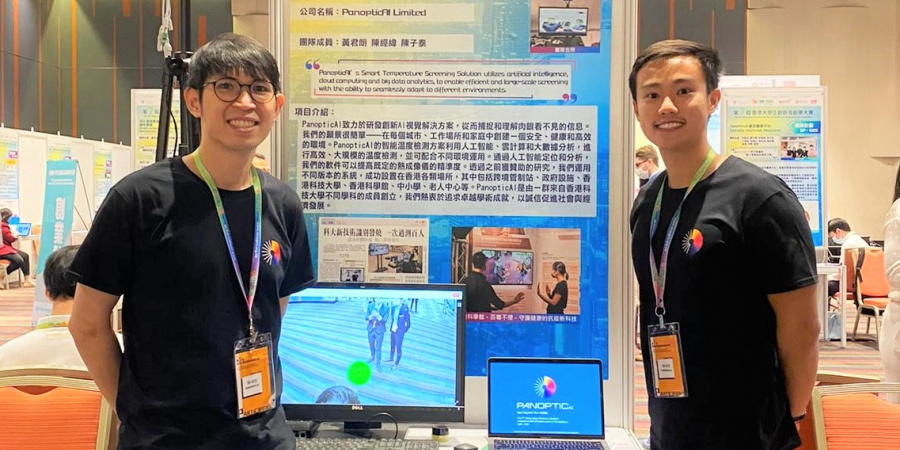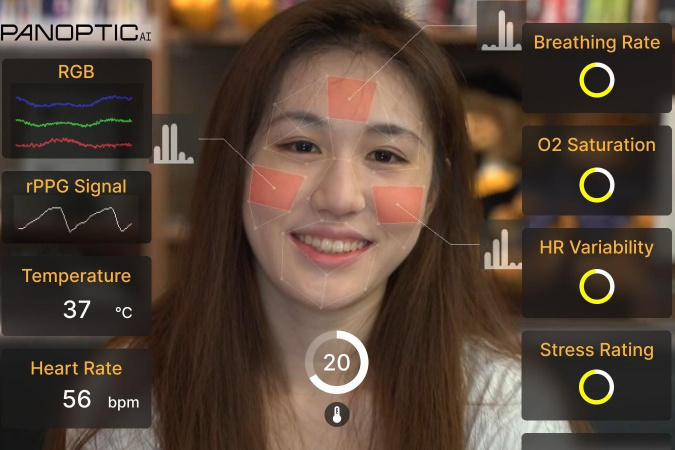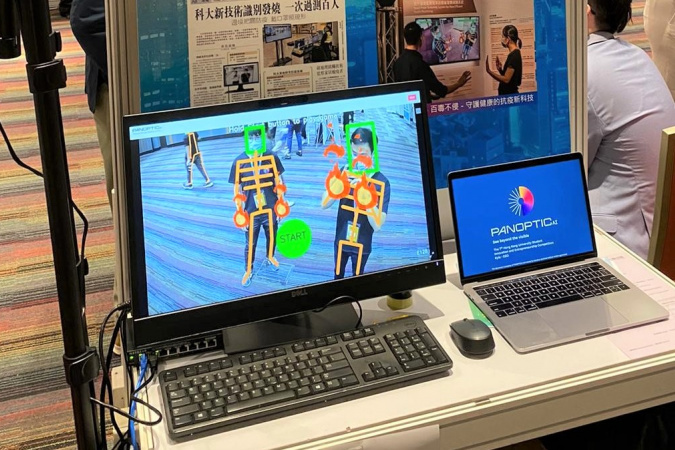Camera-Based Health Monitoring Solution Won Grand Prize & First Prize in Innovation and Entrepreneurship Competition
The Smart Fever Screening System developed by Prof. Richard SO’s team for timely deployment in Hong Kong during the start of the COVID-19 outbreak in early 2020 has continued to advance and earn recognitions. The team recently won the Grand Prize in the entrepreneurship track and First Prize in the start-up category of the 7th Hong Kong University Student Innovation and Entrepreneurship Competition (第七屆香港大學生創新及創業大賽) for their enhanced project titled camera-based health and wellness monitoring solution.
Led by Prof. So, Professor of Industrial Engineering and Decision Analytics (IEDA) and Associate Dean of Engineering (Research & Graduate Studies), the team comprises Bioengineering PhD student Kyle WONG Kwan-Long, IEDA PhD student Nick CHIN Jing-Wei, and IEDA MPhil student CHAN Tsz-Tai. In response to the pandemic, the team developed a smart temperature screening solution that utilizes artificial intelligence, cloud computing, and big data analytics to enable efficient and large-scale screening with the ability to seamlessly adapt to different environments.
The three students co-founded their start-up PanopticAI in September 2020 to extend their camera-based solution to detect additional physiological signals, for example, heart rate, respiratory rate, and blood oxygenation saturation. By combining remote plethysmography (measuring changes in volume in different areas of one’s body) techniques with deep learning algorithms, the vital signs of a person can be extracted by analyzing subtle light changes on the skin that are invisible to the naked eye. Accurate measurement of core vital signs can enable further diagnostic capabilities such as fever, stress, cardiac and respiratory risks.
A total of 10 HKUST teams involving students from various disciplines received awards in the competition. (View the full list of HKUST winning teams in the news of the Entrepreneurship Center on June 4, 2021.)
Organized by the Hong Kong New Generation Cultural Association (香港新一代文化協會) and Hong Kong Science & Technology Parks Corporation (HKSTP), the competition attracted 201 entries from 608 participants in 19 different institutions. The selected winning teams will represent Hong Kong in the widely recognized national innovation and entrepreneurship competitions for tertiary students, namely the China College Students’ “Internet Plus” Innovation and Entrepreneurship Competition and the “Challenge Cup” National College Students’ Extracurricular Academic Science and Technology Contest.
Related link:
- HKUST press release (Mar 24, 2020): HKUST Researchers Develop a Smart Fever Screening System Offering a More Efficient Solution to Safeguard Public Health
- HKTDC story (Oct 29, 2021): 初創研AI監測健康數據 冀三年內拓展全球商機



